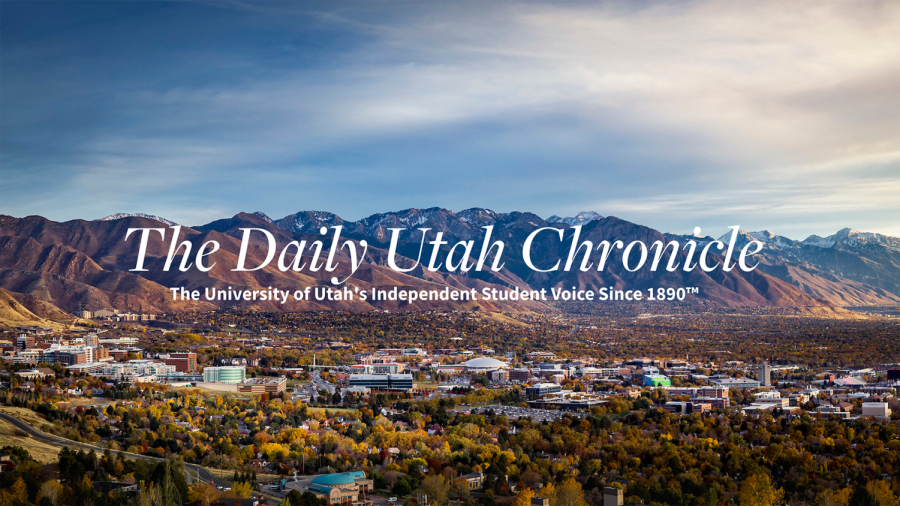Shadley: Education Should Not Be Tied to Employment
March 19, 2022
The University of Utah recently announced a partnership with Amazon to provide undergraduate education to Amazon employees. Amazon Career Choice allows hourly employees who have been with the company for at least 90 days to enroll in training programs for high-demand occupations. Since 2012, roughly 50,000 employees have benefited from the program. At the start of this year, Amazon expanded Career Choice to include tuition for four-year universities. And now, they’ve selected the U to serve Amazon employees in the Salt Lake valley.
This program provides those who might not otherwise have access to a four-year degree the opportunity to earn one. However, Amazon Career Choice comes with a major caveat. If an Amazon employee gets fired or quits their job, they obviously can no longer use the funds. Amazon has made an obvious attempt to wrestle away more power from their employees, and the U has helped them do it. With Career Choice, Amazon tied their employees’ ability to receive an education to their employment, making it even more difficult to leave adverse working conditions. If the U legitimately wants to increase access to education, they should do so in a way that doesn’t make education contingent on one’s employment status.
Imagine you’re an Amazon employee and you’ve just finished the second year of your four-year degree. You love your major and you can’t wait to pursue a career in the field. And you wouldn’t be able to pay for it if not for Career Choice. What an incredible opportunity to get a free education. It is free, right?
A four-year degree is a four-year commitment. And while you’ll certainly benefit from taking most undergraduate courses, the tangible and economic value of a degree comes from its completion. So, when you’ve already spent thousands of hours working towards your degree, not finishing feels like you wasted all that time. All of that work further incentivizes you to stick to the circumstances that allow you to finish your degree.
Your boss reminds you that you can’t graduate without Career Choice as he asks you to pick up an extra shift. You can’t afford to say “no” — you accidentally dropped two Alexas in the warehouse last week and got a strike. Getting fired would be devastating. You wouldn’t be able to finish your degree. So you take the extra shift, which quickly becomes two. If this keeps up, you’ll have to drop one of your classes. You just don’t have the time.
A recent study found that nearly one-third of employees would be “likely” or “somewhat likely” to quit if they didn’t lose their health insurance. Employers like Amazon have exploited this phenomenon of “job lock” for decades. Without a system of universal healthcare, 156 million Americans receive health insurance through their employer. Some quick math suggests that 50 million Americans haven’t quit their job because they’re afraid to lose their health insurance. And Americans quit their jobs mostly because of a toxic work environment. Whether it’s dealing with unreasonable or abusive management, feeling disrespected or unethical behavior, workers will opt to endure this environment if quitting means losing their healthcare.
Back in the Amazon warehouse, your back starts to hurt from all the shifts you’ve taken. You see a back specialist. But Amazon has covered your health insurance since day one. It would’ve been much more expensive without them. The doctor says you can’t spend more than two hours sitting in a chair. Those three-hour night classes won’t work for you anymore. So you justify staying at this job, not because you like to work there, but because you feel as if you can’t leave.
It costs businesses more money to hire new employees than to retain existing ones by offering health insurance or tuition. The benefits that employees receive are benefits for the company, not necessarily the employee. That said, I’m glad that more people have access to education and healthcare. But those are basic human rights — they shouldn’t be tied to our employment status.
Amazon’s Career Choice program feels like one step forward and two steps backward. Yes, more people can get an education at the U, but we’ve ceded even more power to Amazon over its employees. To prevent that, the U must have programs in place that allow Amazon employees to finish their degrees for free, even if they quit or get fired. Otherwise, the U will have helped strip away workers’ rights and sent out a press release to announce it.









Isaac • Mar 22, 2022 at 6:25 pm
Great analysis on how tying tuition to employment helps make it easier to exploit workers and limits their mobility to try different occupations/careers while attending the U.
Clinton Bell • Mar 22, 2022 at 7:57 am
Bless your heart, buttercup.
It’s not free, it’s a freaking employee benefit. You get the benefit because you are an employee. I paid for my undergrad degree through a combo of scholarships and work while providing for my family. (This was about 2011-2014 & I averaged about $8/hr for hard labor). I’ll tell you it was much nicer working my regular 40 hours/week and having my employer pay for my master’s degree. (2018-2020) In fact they might even be paying for another master’s and a PhD so I can learn skills that are economically valuable to them.
No one is making you work for Amazon. You can quit and find a different employer & if you are lucky they might be willing to pay for your degree like Amazon will. My employer will pay for employee education. They also expect me to keep working here another 3 years for the opportunity. It’s a trade off. Sell some of your time and sacrifice a bit now for a big return later. Plus the work experience is valuable & if you do a good job most employers will do what they can to keep good employees happy.
Reed • Mar 21, 2022 at 10:09 pm
I do not understand the premise of this article. Amazon is in the business of facilitating the movement of goods, not the business of higher education.
I don’t understand why the terms of this engagement are outrageous. Amazon is not expected to provide me, a non employee, with access to higher education and this extends to past employees.
Are you proposing that Amazon simply not provide this service to their employees?